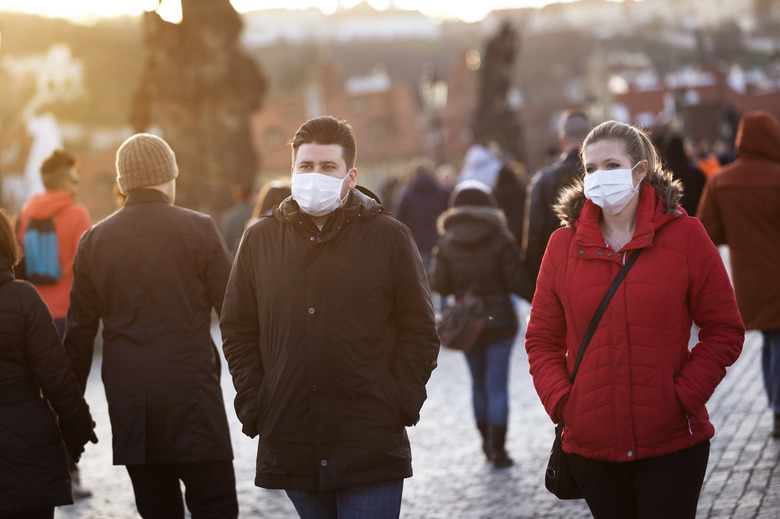Doctors Are Closer To Solving One Of The Last Remaining Coronavirus Mysteries
For so many survivors, COVID-19 doesn't end when the immune system eliminates the novel coronavirus from the body. The illness often turns into what's often referred to as "Long COVID." Millions of people can experience various symptoms once COVID-19 passes, symptoms that are tied to the original infection. Doctors still can't explain why these "long haulers" end up battling COVID symptoms for many weeks or even months after an initial infection. One of the latest theories suggests that autoantibodies can appear during COVID-19 and might cause the lingering symptoms that follow the infection. There's also no cure for Long COVID, although new data indicates that vaccines might help alleviate the symptoms for a portion of people.
Researchers are getting closer to understanding Long COVID, which might allow them to develop better treatments. The latest discovery indicates that Long COVID symptoms might arrive in specific waves, suggesting there could be a pattern to this chronic COVID issue.
Indiana University School of Medicine researcher Natalie Lambert and her team surveyed thousands of long-haulers, asking the patients to describe the kind of Long COVID symptoms they experienced. Plenty of studies have shown the wide-variety of Long COVID manifestations. Some of the common ailments include flu-like symptoms that are extended over weeks and months. Neurological problems are also part of the Long COVID experience, as are dermatological issues.
As shared with NBC News, the new study has not been peer-reviewed. But if the findings are accurate, they could help doctors refine therapies for the Long COVID patients they're still treating.
Lambert surveyed 5,163 long-haulers with the help of an online website dedicated to Long COVID — Survivor Corps. Respondents reported more than 100 different symptoms, which might not all be tied to COVID-19. But Long COVID patients are carefully monitoring their symptoms. "They are normally tracking their symptoms week by week so that they can report it to the doctor to try to get help," Lambert told NBC.
The first wave of symptoms includes fatigue, headache, fever, and chills, and these flu-like symptoms can appear anywhere between 2 and 14 days after an infection with the novel coronavirus. "Then it seems like diarrhea, nausea, and vomiting are five days later, typically," Lambert said.
Some 10 days into COVID-19, a different wave manifests itself. Neurologic symptoms like confusion, dizziness, and difficulty concentrating appear. Joint pain and lower back pain are also common at this time. Intense pressure in the brain has also been included in this wave of symptoms.
After 15 days, patients might experience high or low blood pressure, heart palpitations, and a tendency to faint. After 21 days, mouth sores, muscle twitching, eye infections, and COVID toes can appear.
What's also important to note is that a new wave of symptoms won't always replace the previous one. Some of the early issues can linger, or they can reappear. This would explain the different Long COVID experiences that survivors have been describing during the pandemic. This broad spectrum of Long COVID symptoms also makes it challenging to diagnose long-haulers. The symptoms can come and go, and they can last for several months after the initial infection.
The study also indicates that, while COVID-19 symptoms can vary, the first few waves are common for all people who contract the virus, including patients who never develop Long COVID. A non-long-hauler would experience the same first few waves, including flu-like illness, gastrointestinal issues, and neurological problems. This makes it particularly difficult for clinicians to determine the chances that a COVID-19 survivor will develop Long COVID.
